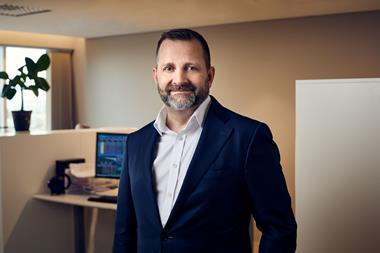The current environment in the Netherlands is very good for consultancy, says Dolf Hoeks, managing director for Watson Wyatt Brans in Amstelveen. The 130-strong practice, the result of the merger by the international firm with the long established Brans some 18 months ago, is firing on all cylinders, across a wide range of practice areas. “The limiting factor is the difficulty of obtaining suitable staff.”
While the main areas of activity are the actuarial and pensions, the group has a human capital practice and a multinational group focused on the needs of Dutch multinationals, looking in particular at M&A work and needs of expatriates. “This is just a group of four which we set up just a year ago and is being very successful,” says Hoeks. The dedicated investment consulting practice consists of around seven, and focuses on the needs of the medium to smaller pension funds, and monitoring some directly insured arrangements. “The bigger funds have everything in-house and only need bits and pieces from outside.”
On the actuarial side, which is the firm’s biggest area, ongoing relational work is the norm, but he agrees that on the investment consultancy side it is “mostly project work, such as ALM or manager search”.
It was the prevalence of project-type work that was the key factor that disillusioned Wilshire Associates about offering pure retainer-based asset consulting in the Dutch and European market. “While we still have selected consulting clients in the Netherlands, we are generally not interested in new consulting projects and are instead focusing on our asset management activities such as private equity,” says Dan Allen, who set up the Amsterdam office some six years ago. In the US, Wilshire is as committed to asset consulting as ever.
“What we found was that in the Netherlands and Europe generally, we are hired by the staff for a specific assignment and once complete they do not need you any longer. That is not the best business model for us.” The consultants are now offering private equity investment and absolute return investment strategies to continental clients.
Lou ten Cate, who worked with Wilshire for a number of years and left the group with its switch towards asset management, is aiming to set up a new type of consultancy operations is setting up a new style advisory operation (see page 7). He describes it as a “super consultancy”, helping pension funds not only on the asset side but also for benefits and administration, for medium-sized funds of up to E4bn. He sees his competitors as the bigger pension funds spreading their umbrellas into providing across-the-board services to smaller funds. “I am sure that over time the power of the consultants will diminish.”
Bert Kiffen, who runs his small consultancy operation Kiffen International Pensions Advisors, says his area of concentration is to help companies set up schemes and perhaps reinsure these schemes. These schemes of perhaps around Dfl100m (e45m) or less could end up taking the insurance route. What is happening is that the insurers here are more flexible than they are outside the country. So if you have a fund of just Dfl80m, they will provide a segregated account and we can discuss how we will invest your assets.”
There is such high demand for consultants in the market that even the cautious pension funds are not too worried about paying fees.












